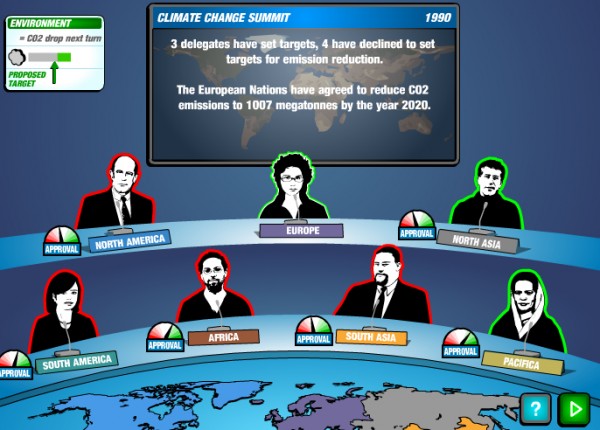About
Author: Thomas J. Fennewald & Brent Kievit-Kylar
Publisher: Simulation & Gaming
Pages: N/A
Description
“The topic of climate change offers unique challenges to simulation game designers largely because standard game mechanics fail to capture the complexity of this real-world problem. Climate change dynamics are characterized by the second-order delayed effects of carbon emissions on global temperatures and by political actors, who often have unique individual goals and asymmetrical abilities.
However, many climate change games exhibit mechanics such as immediate and first-order delayed effects, zero-sum collaborative play, zero-sum competitive play, and players with symmetrical abilities and goals. By examining variants of an asymmetrical three-player common pool resource game, this research illustrates how inclusion or omission of mechanics found in real-life climate change impact the outcome of simulations and gameplay.” – Thomas J. Fennewald & Brent Kievit-Kylar
Steve Wilcox is an assistant professor in the Game Design & Development program at Wilfrid Laurier University where he researches & creates knowledge translation games. He is also the co-founder & former editor-in-chief of First Person Scholar.

